Description
These pieces were written for the National Famine Commemoration 2018 at University College Cork. Each piece is based on a document from the Famine years (1845–49) to mark the launch of Great Famine Online, a ground-breaking digital project.
I
On 1 March 1847, Father Eugene McCarthy wrote a letter to the editor of the Cork Examiner that detailed the horrific conditions in his parish of Watergrasshill, after a week in which eleven of his parishioners had died from diseases caused by the Famine. These nightmarish scenes are related in a matter-of-fact manner: a man dies from exposure while gathering brambles to use as firewood to warm his freezing family; a woman and her grandson die in short succession in a roofless house; a man calls to back door of the parochial house, begging for some food that would give him the strength to bury the dead girl he carries on his back. In Fr. McCarthy’s Lament, the uilleann pipes play a caoineadh for the dead and the dying of Watergrasshill parish. This caoineadh contains the first intoned phrase of the plainchant Mass: ‘Kyrie eleison’ (Lord have mercy). This prayer becomes more insistent, urgent, and impassioned until the caoineadh is revealed as the unadorned Kyrie plainchant, a final plea for mercy from God.
II
Prof. Boole’s Farewell: George Boole was the first Professor of Mathematics at University College Cork. He is most recognized as the inventor of Boolean Logic, which is the basis of modern digital computer logic. On 25 October 1849, Boole wrote to his sister to tell her of his safe arrival in Cork, and his first impressions of his new home. On his train journey from Dublin to Cork, he observed the ravages of the Famine: ‘…it is impossible to speak in terms too sad’, he wrote, ‘there is over the whole country an air of utter destitution and abandonment’. Prof. Boole’s Farewell takes inspiration from Boole’s seminal book The Mathematical Analysis of Logic, and its presentation of the influential idea of the ‘Universe of Discourse’, in which he represents the individual members of classes of objects with the letters x, y, and z. In this piece, these classes of objects are represented by three distinctive tunes, each in its own time signature, which are combined to form a cohesive system of relations. These tunes then drop out, one by one, reflecting the deserted countryside that Boole witnessed on his train journey.
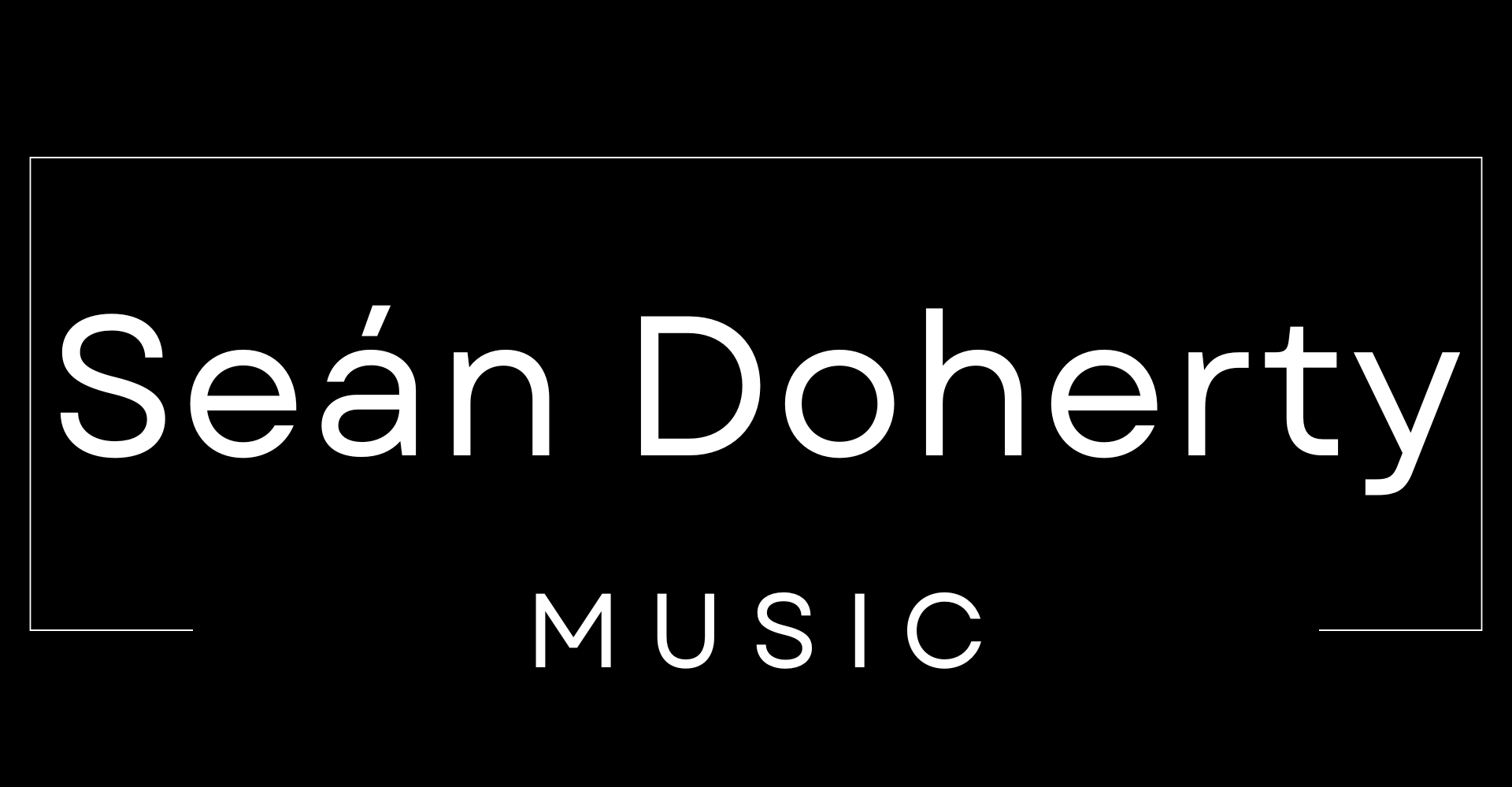
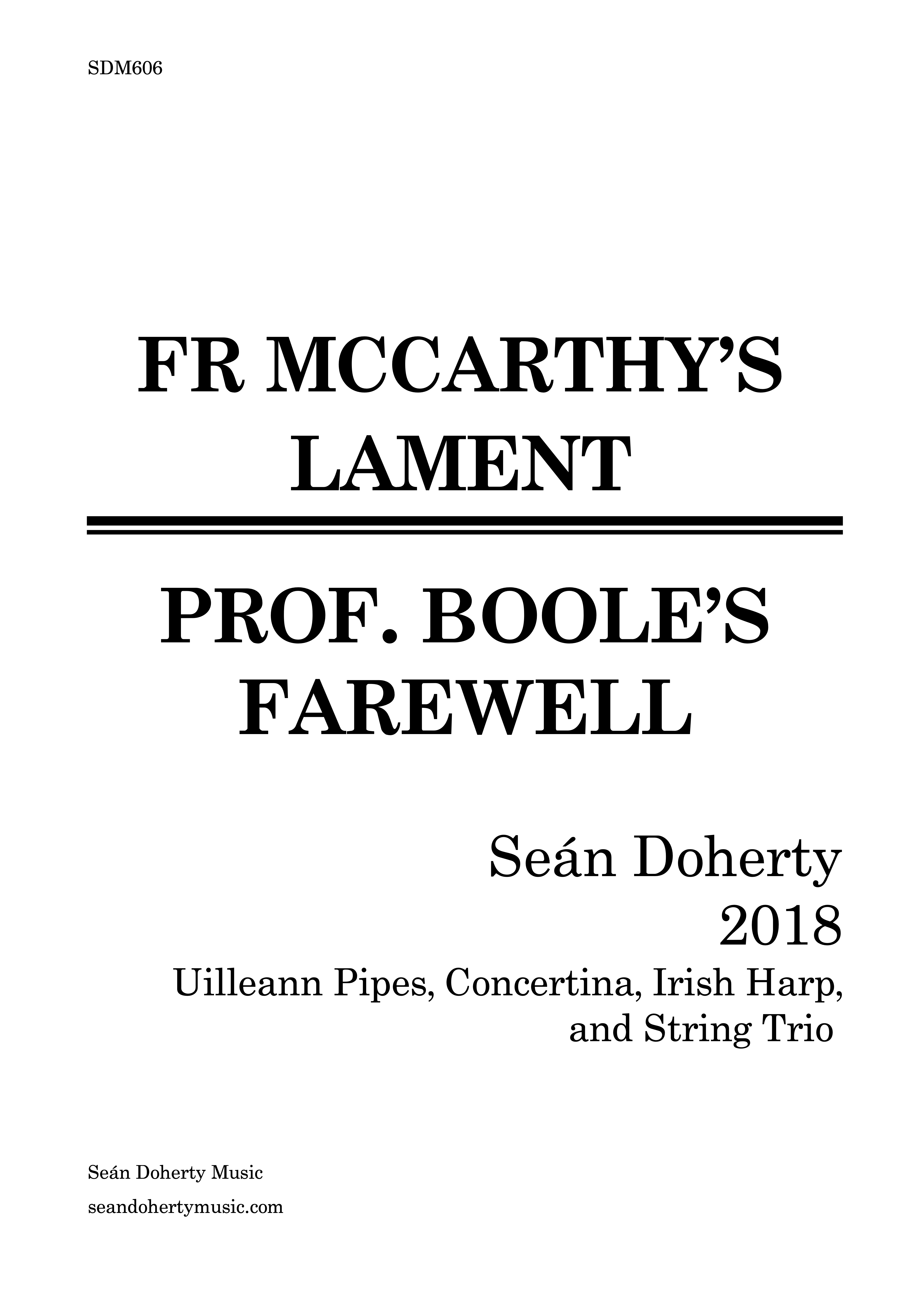
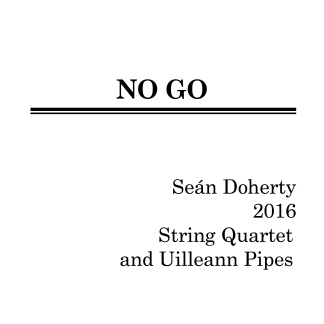
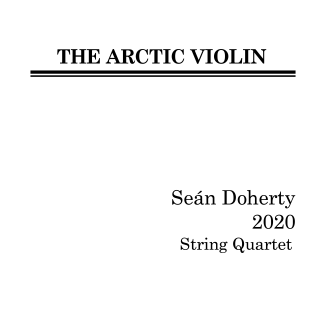
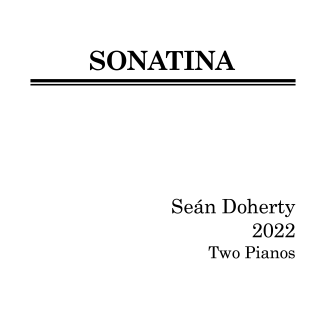
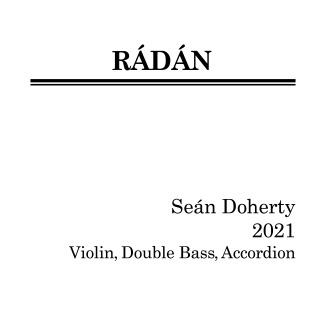
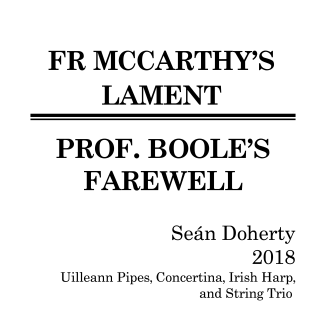
Reviews
There are no reviews yet.